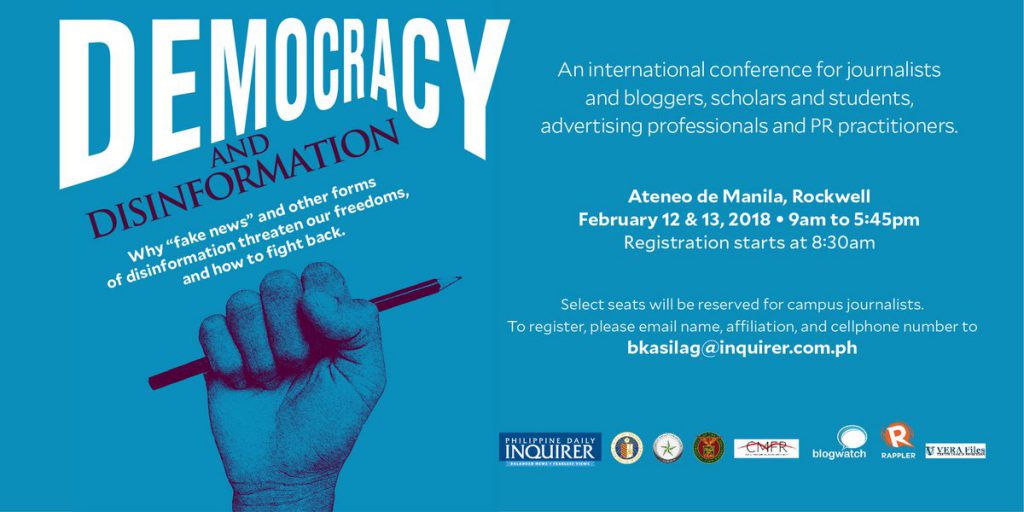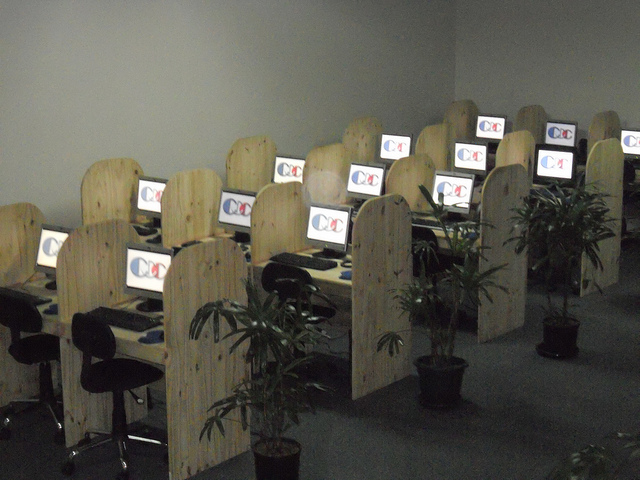Moves to fight “Fake News” and Other Information Disorders in 2018 (updated)
Fake news. It’s complicated. I prefer not to call it “fake news” but it has already become an umbrella term that talks about a specific kind of propaganda/misinformation/disinformation, so let me just refer to it as “fake news” for brevity. I have written many articles in the past that the only way to combat fake news is fact checking and studying literature from reliable sources like First Draft.
READ: Fact-checking day is every day. Here are 8 tips on how you can stand up for facts
READ: Fake news: 7 types of mis- and disinformation (Part 1)
READ : Be a savvy news consumer. Here are 6 tips for identifying fake news (Part 2)
It is 2018 and my fearless forecast earlier this year was there will be more public awareness in fighting fake news. A Senate Hearing on a possible legislation vs Fake news is in progress but additional legislation is the not the answer. I believe that the public needs to be aware of the “Threat of the Dunning-Kruger Effect”. Not everything on the internet is true. It always pays to give something the benefit of the doubt.
The Internet is getting swarmed by self-declared political analysts, watchdogs, and authorities who think that their voices are general truths and their intelligence superior.
Dunning-Kruger effect is what you call this cognitive bias that says people who are incompetent overrate themselves while people who are indeed intelligent think of themselves otherwise.
Simply, Dunning-Kruger effect says that no matter what happens, these “incompetent” individuals do not have the very cognitive abilities to understand that they are wrong. Thus, they incorrectly judge themselves as well as matters outside their circle.
READ: Additional legislation may not be the answer to curbing fake news
There are action plans to help curb the proliferation of fake news.
-
- Download resource on digital methods to study false viral news
(Download here)
There is a project of the Public Data Lab with support from First Draft that is a valuable resource for fact checking. A Field Guide to “Fake News” and Other Information Disorders explores the use of digital methods to study false viral news, political memes, trolling practices and their social life online.
It responds to an increasing demand for understanding the interplay between digital platforms, misleading information, propaganda and viral content practices, and their influence on politics and public life in democratic societies. There are five chapters that helps track fake news on facebook, twitter and on the web.
Chapter 1 MAPPING FAKE NEWS HOTSPOTS ON FACEBOOK
Chapter 2 TRACING THE CIRCULATION OF FAKE NEWS ON THE WEB
Chapter 3 USING TRACKER SIGNATURES TO MAP THE TECHNO-COMMERCIAL UNDERPINNINGS OF FAKE NEWS SITES
Chapeter 4 STUDYING POLITICAL MEMES ON FACEBOOK
Chapter 5 MAPPING TROLL-LIKE PRACTICES ON TWITTER
2. Facebook changes the News Feed, where you can expect to see more from your friends, family and groups.
Prioritizing what your friends and family share is part of Facebook’s effort to help people spend time on their site in what it thinks is a more meaningful way. So do we expect to see less politics and brands?
Facebook head of its News Feed team, Adam Mosseri, wrote that showing more posts from friends and family “means we’ll show less public content, including videos and other posts from publishers or businesses.” He further explained that “other posts that your Facebook connections find engaging will also rise to the top. Conversations stemming from live videos, celebrities’ posts, private groups and other highly interactive post types will be among those highlighted on the new News Feed.”
3. Facebook announced it would highlight “trusted sources” of news based on community feedback.
Starting this week, Facebook will begin tests in the first area: to prioritize news from publications that the community rates as trustworthy.
How? Mark Zuckerberg will survey “a diverse and representative sample of people using Facebook across the US to gauge their familiarity with, and trust in, various different sources of news. This data will help to inform ranking in News Feed.” They will start with the US and plan to roll this out internationally in the future. Though Facebook’s two-question trustworthiness survey is sound, the results will still be biased. Steven S. Smith, a professor of political science and director of the Weidenbaum Center at Washington University in St. Louis, called it “not so bad.” Smith adds that “the selection of the source and their attitude toward it are all a product of their bias” So, while the two-question survey format may be valid, the overall results likely won’t be. “I think that their responses are going to represent audience bias more than any reasonable standard of trustworthiness,” Smith said.
3. Democracy and Disinformation Conference
The Democracy and Disinformation Conference will be held on February 12 and 13—Monday and Tuesday. It will be an international conference for journalists and bloggers, scholars and students, advertising professionals and PR Practitioners. The theme is both a cri de coeur and a call to action: “Why ‘fake news’ and other forms of disinformation threaten our freedoms, and how to fight back.” Three of the country’s leading universities are partnering with us: the University of the Philippines (UP), the De La Salle University (DLSU), and the Ateneo de Manila, which is hosting the event at its Rockwell campus in Makati City in Metro Manila. The Department of Journalism of UP, the Department of Communication of DLSU, and the Department of Communication of the Ateneo are taking the lead. BlogWatch is also one of the partners.
The biggest media organizations in the Philippines are full partners, including the two largest TV networks, Rappler the online news site, Vera Files, and the Philippine Daily Inquirer.
4. Government to hold information summit vs fake news in 2018
As a start, Presidential Communications Operations Office (PCOO) chief Martin Andanar described the upcoming information summit as “grand” as it would gather information officers of provinces, cities, and municipalities under the PCOO. In fact , the National Information Convention for all government information officers across the country will be held on Feb. 19 to 21 in Davao City. The three-day national convention would be able to provide knowledge to information officers on how to create their communications plan, responsible sharing of information, freedom of information, how to combat fake news and how to further become responsible information officer.
They are also eyeing collaboration between the government and private media as well as educational institutions, including the Department of Education after the Convention. He said the PCOO could not resolve fake news alone as he described social media as “big” and “massive.”
I cannot trust Facebook to fix their algorithm to solve the fake news issue. Neither can I rely on the government to educate the public. Of course, they can try as long as their resource speakers are not limited to government.
It is our decision to continue to provide proper guideposts to allow our community to be savvy news consumers. Continue to write articles of national interest and those that educate the users of social media platforms on its judicious use and inculcating a culture of critical thinking and respect for truth and reason.


